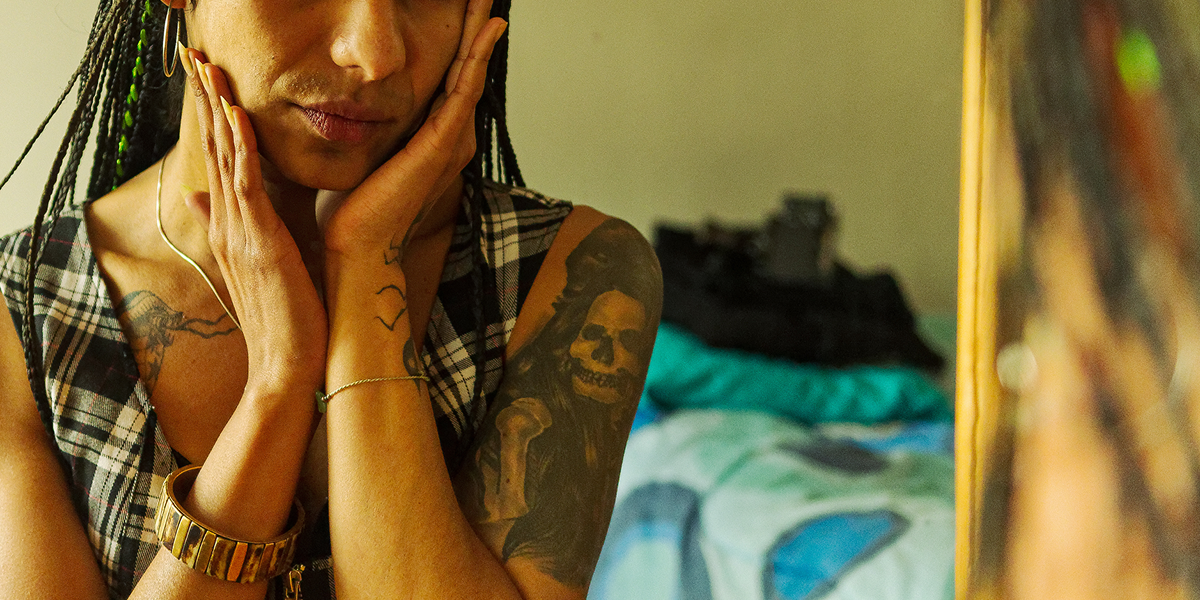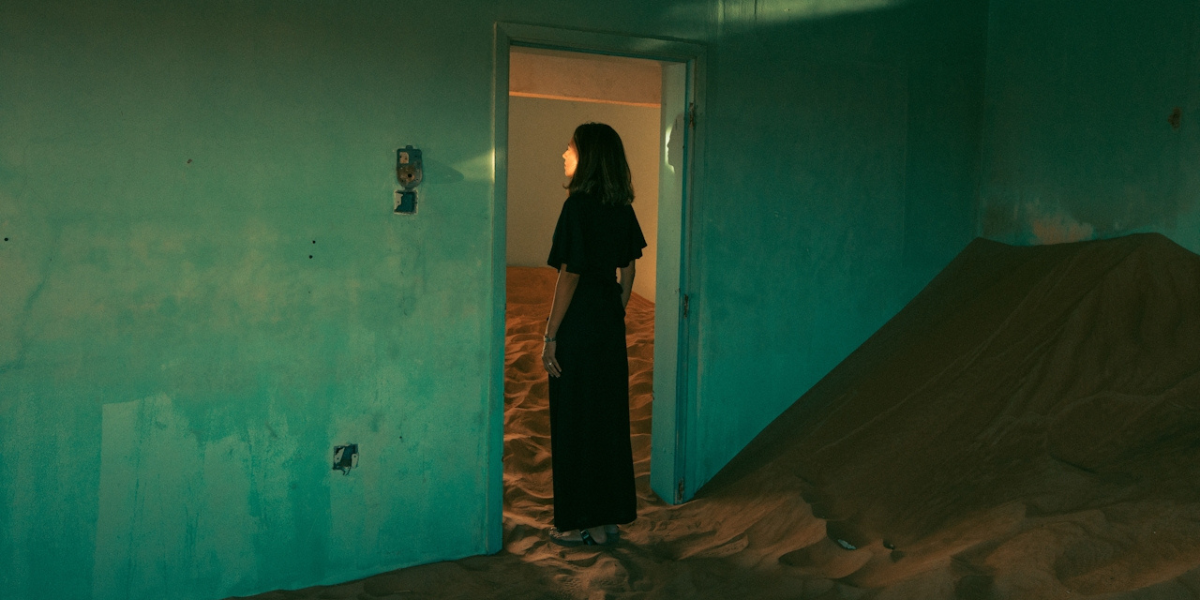Hours before my ex-partnership changed forever, we watched on a Ted Talk a couch long-dented from use. The Ted Talk elevated the storytelling of a formerly incarcerated man. As a Black man, his punishment for one night of actions, even once released from prison, felt unending. His main lesson for his audience was “People are more than the worst things they do.” I agreed with this, and I still do. I believed prisons were obsolete for true reform of spirit and society, and I still do. My ex-partner felt the same way, and our shared belief in restorative justice was one of the many reasons we were so compatible holding hands through this very Ted Talk.
After the talk came to an end, we closed the computer and ended up in the white plush sheets of my bedroom. What happened that night I immediately labeled as “they went inside of me without asking.” I didn’t want to say Rape because Rape is punishable by law. I didn’t want to use the the word Rape because it meant that something was broken into, far harsher language than trespassing. I took years to call this night for what it was because I could see this loved one’s immediate regret. They reeled themselves in and cried, “I’m afraid of my hands.” Weeks later, they sent me an apology song. Weeks later, they sent me a handwritten apology letter, all with a promise of continued remorse, reflection, and moving forward. I thought at the time I couldn’t shift the terms of our relationship based on this incident because that would constitute punishment for something they promised would never happen again.
All this to say, I punished myself instead and stayed in a sexual relationship with this person. I didn’t name their actions or consequences that would have benefited me because we had so fondly referred to our relationship as a cooperative. I stayed because I told myself a true teammate-style power couple could “work through anything,” and we had potential to be one. I stayed because when they came out as transgender months later, I knew trans feminine folks are too often framed in a binary as Perfect or Evil – to allow them to exist somewhere in between is a place of humanization. There were enough good things, like laughter and lake walks and switching outfits, to know this person was more than that horrible moment.
Whenever I told a friend over the phone what happened, I framed what happened as an accident, a slip in entitlement to my body and my time. I wish someone had told me that an apology isn’t good enough in this case, but, then again, maybe I wouldn’t have listened to an individual’s voice when my ex-partner and I had promised each other community.
But, then there were more sexual assaults over the course of years. None were as obvious as the first, but they piled on alongside my anger towards them. My body grew impatient for basic dignity and touch without fear or dissociation. They often said to me, “I feel like you’re still punishing me” whenever I spoke about it, which always bought me back to the memory of the night where this all began. Sometimes, as continued self defense, they would reference a bell hooks book about change. I felt guilty for my emotions not being true to my politics. Maybe they felt the same about themselves.
But, the fact that they were always “right” based on co-opting restorative justice language nearly broke me. In this brand of leftist politics, saying the right words and maintaining a tick-box of various identities is often enough to be “good” without consequence. This, combined with my experiences of childhood sexual abuse, was enough to make me feel like whether I stayed or whether I left, rape or continued assault was inevitable within this community or any community. This feeling is both why I stayed for as long as I did and why I took the risk to ask them to leave.
However, when we eventually ended our relationship, I immediately feared that I or the books they read didn’t teach them well enough to not assault again. There was a part of me that told myself that I failed as an activist and I failed as a trans person loving another trans person. As justice, I took over the lease – I didn’t have to be the one to move. This upset them of course because it was the first time I gave them consequences for their repetitive actions that formed a pattern.
I’m sharing this with you because survivors, even abolitionists and activists, will tell themselves a million different things to stay in a harmful or abusive situation or to take the heat for it. In this case, I didn’t want to call what was happening abuse, so I called it harm because harm I told myself I could handle.
I regret, for lack of a better word, that we attempted to lead our own practice of restorative justice without long-term outside support that could have guided me to my most truthful language. Placing the work of a community or society on each other made it so I couldn’t leave the toxic sexuality of our relationship.
Since then, I have found some of the resources I had previously been looking for. Both groups center communities and fellow survivors directly impacted by childhood sexual abuse. These groups include Generation Five and Hidden Water; the latter, for example, provides four separate meeting circles: Green Circle for those who were harmed as a child or young person; Purple for those who have caused harm and are ready to take responsibility; Blue for people who have relationships with someone who has been harmed or caused harm; Orange for non-offending caregivers of this who were or caused harm. Both groups mentioned break the binary of survivor and abuser being the only parties to remember, feel impact, or take responsibility for abusive events.
What’s still missing are resources and education for people who have caused sexual harm before it transforms into abuse of bodies or power. It’s a place that is not prison. It’s a place where a survivor’s forced forgiveness is not the goal. It’s a place that releases the survivors from the thought or burden of what I have done, which is turn myself into a physical lesson plan. I numerously asked my ex-partner to seek out such a group, a workshop, a tangible resource of any kind and they always came back empty handed. Even in my own experiences of co-facilitating and attending “How To Support A Survivor” workshops at colleges, nearly everyone in the room identified as a survivor, nearly everyone in the room was a cis woman – meaning, we never got to conversations of prevention or the tangle of ways different people of different identities experience violence.
Practicing an idea of restorative justice without outside involvement or generative tools became self-defense for the both me and my ex-partner – as opposed to offering each other time, resources, and space to appropriately process or heal. As a survivor, I ultimately put society’s healing before my own, and I’ve learned this is not how it works. Instituting personal boundaries isn’t punishment. The loss of boundaries is not restoration. The restoration is in healthy mentorship; tools accessible for folks at different stages in their own mourning; the restoration is in being held by others who share your own experience; the restoration is in defining your own terms of accountability, which includes distance and perhaps disappearance from my life, but not a dumping by the state.
After all, a relationship is not a site of activism, a community is.








Comments
Thank you for this!
lovely & sad & important. thank you
Thank you so much for this!
I think you’re article/essay also clears up the misunderstanding some people have that restorative justice means no consequences and in my opinion that’s false, because consequences aren’t automatically punishment.
REALLY relate to this. I think sometimes when you know your politics are right and that they’re saving your life, they can start to feel like an acceptable way to hurt yourself
“a relationship is not a site of activism, a community is.”
This this this.
When we’re so atomised and alienated and isolated, it’s so easy to try to take on the work of a whole community within a single psyche, or a couple, or a family, or a tiny friendship group. It doesn’t work, and then we feel like we’re failing… but it couldn’t. The scale’s all wrong.
Also, your description of the mental and emotional contortions you put yourself through to avoid the impossible (true) words–it’s way too familiar and accurate and true.
Thank you.
Thank you for this important and hard piece. Sending you care.
Thank you for sharing. This type of dynamic (often with different finer details) is depressingly common, and so hard to talk about due to fear of community ramifications.
I’ve been writing about the same issues. Restorative Justice has been corrupt from the outset in the 1970’s. Have a look at my work on the ways restorative justice covers up crime https://www.academia.edu/11190241/When_Restorative_and_Community_Justice_Facilitate_and_Perpetuate_Crime
And also my work on how RJ minimizes victims around the globe to promote a notion of the facilitator’s goodness. https://www.academia.edu/29008323/Power_Race_Class_and_Restoration_What_is_Justice_Amongst_Clashing_Paradigms
I’ve been presenting this work to the NACRJ, Howard Zehr, Mark Umbreight, Dominic Barter and others since 2016 with very little recognition or work on their part to overcome the harms they perpetuate.
Thank you for writing. The clarity with which you piece together the aftermath of your experience is immensely eye opening. The pitfalls you’ve outlined…I hope whoever needs to is able to read this; you’ve included some crucial knowledge here. (Just wish it wasn’t attained at such cost.)
I’ve been coming back to this essay, and I’m still tripping over that last line: “a relationship is not a site of activism, a community is” -’cause woah, yes, my gut reaction is to applaud right alongside the commentator(s) above.
The more I think on it, though, the less sure I am I share the sentiment completely -or my interpretation of it, that is. What is a community’s capacity, I find myself wondering, for absorbing transgressions and putting forth the necessary work into facilitating restorative (or rehabilitative) justice? What subset (or superset?) of community do we expect to step up? If there isn’t, how do we build a community capable of meeting these needs?
It’s a topic I look forward to seeing more on from Autostraddle.
Excellent article, I think this topic deserves discussion in all areas and places. I first came across this topic reading about it in essays on sexual assault in the military at https://studydriver.com/sexual-assault-in-the-military/ and I realized that it is very important and each of us must speak about this because with the help of what we say our word we will be able to prevent the evil and bad negative attitudes of our society. This will allow people to live more freely and not be afraid, which is why it is worth writing such articles and distributing them.
I think this theme merits conversation in all areas and spots. I understood that it is vital and every one of us should talk about this because with the assistance of what we say our assertion we will want to forestall the shrewd and terrible negative mentalities of our general public. This will permit individuals to live more openly and not be apprehensive, which is the reason it merits composing such articles and circulating them.
The bookmaker company
https://melbetting.in/ started in 2012. Despite the fact that the company is still very young, it does not prevent it from fighting for the leading position in the world of online betting. Today, it is one of the leading sports betting companies in India, where millions of players began earning money with the bookmaker that continues its work till this day.